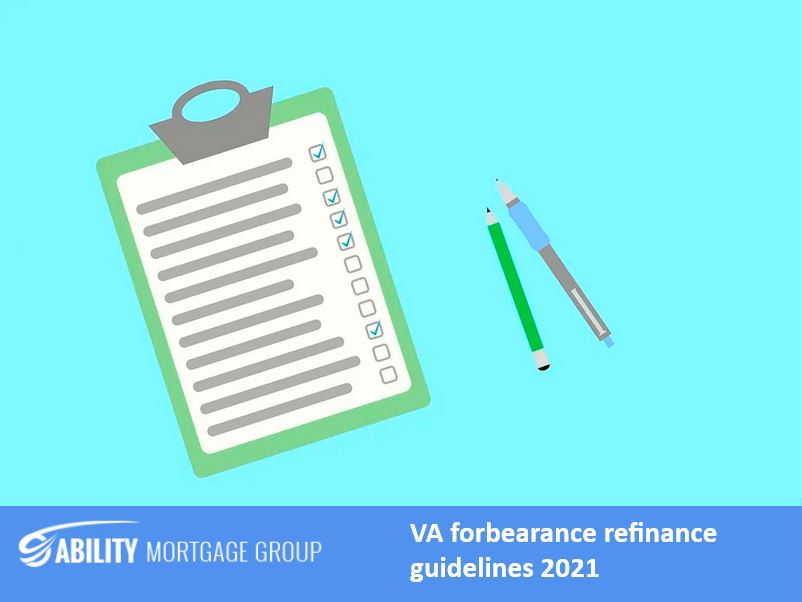VA Forbearance refinance guidelines 2021

It’s no secret that the coronavirus outbreak is creating sparks across the country. From a busy mortgage industry to numerous foreclosures, over a trillion dollars of mortgages could be saved by refinancing.
Several Americans face the gruesome reality of job losses and professional setbacks. The primary concern for anyone struggling financially due to COVID-19 is to ensure that your family is safe and healthy. While it may be hard to admit your financial hardships, your mortgage company is there to help you.
If you served the military, you might want to look into a VA loan forbearance. You have various protections on your VA loan to help you regain control of your finances. Whether you’ve lost your job or have to stay home to take care of your kids, you can request a COVID-19 forbearance. Veterans Affairs expects that any mortgage company is to be comprehensive for up to six months.
A forbearance provides relief to homeowners by pausing or reducing loan payments. Its primary purpose is to alleviate any financial concerns caused by the pandemic. However, forbearance doesn’t stop money from being owed; it delays payment until you are more financially stable.
If you’re concerned that your forbearance is coming to an end, VA expects your mortgage company to be lenient for another three months to help you get back on your feet.
During this national emergency, taking advantage of this program isn’t going to affect your credit score nor be subject to late fees. The VA provides several alternatives to help families stay in control, whether by refinancing or altering their loans.
VA Forbearance Cares act refinance
The Coronavirus Relief and Economic Security Act (CARES) defines a righteous path to payment relief through VA loan forbearance. The CARES Act provides a forbearance option for all borrowers who suffer, whether directly or indirectly, from the Coronavirus outbreak. This relief is available to everyone with a federally backed mortgage, regardless of their status.
Per the CARES Act signed by President Trump on March 27th, 2020, Americans can enter mortgage forbearance upon financial struggles, even if you didn’t lose your job. Your childcare situation, pay cut, or any personal situation resulting in hardship enables you to enter the forbearance program and pause your mortgage payments.
It’s important to understand that any late payments before your approval to the relief program count and can cause issues down the road. A forbearance offers an interest rate reduction refinance loan, which is subject to the criteria below :
- A veteran must be current with all his payments at closing or if the entire loan is paid off over 30 days delinquent time.
- Direct approval isn’t required when the borrower has invoked the CARES ACT. The borrower can no longer be experiencing hardship due to COVID-19
- The borrower must have a fair credit score and an adequate debt to income ratio
- You must occupy your home as your primary residence


